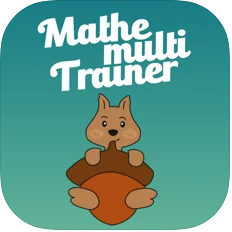Im Rahmen unseres Learninglab ist wieder eine mobile Applikation für Kinder im Rahmen einer Qualifikationsarbeit entstanden – ein Mulitplikationstrainer:
Expand your multiplication skills.
You can start a short game over ten rounds or an online game.If you reach enough points at the short game, you unlock the next level with higher complexity. Or our Online-System creates your multiplications. The system enables you to see your calculations and errors online.
So you are able to analyze your errors and improve your skills. If you play the online mode, you need an account from the learning lab of the TU Graz.



